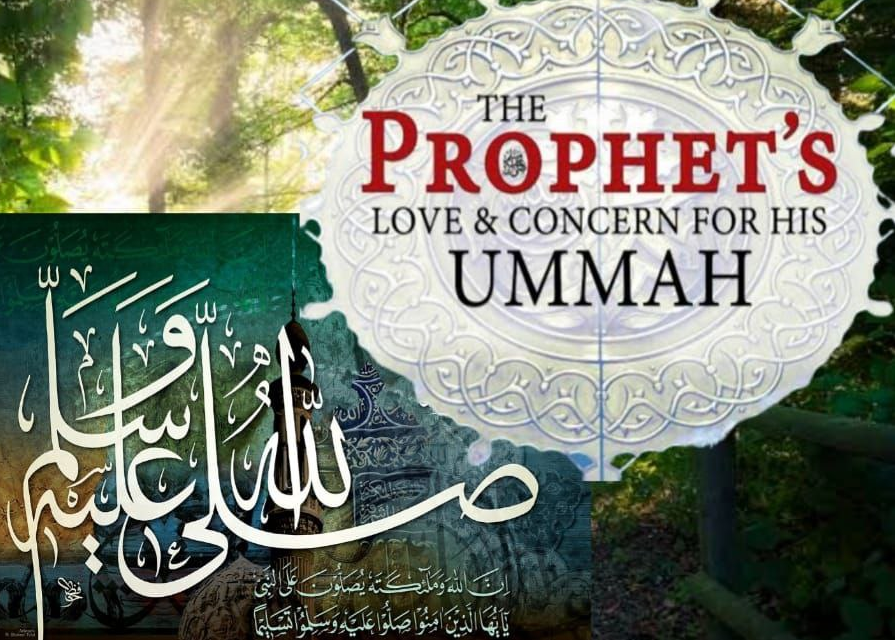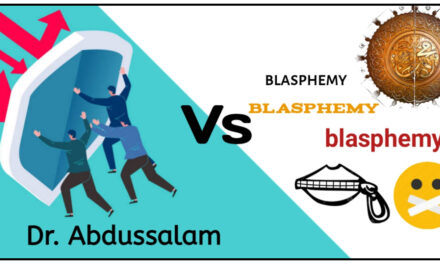by Ehab
The polytheists of Makkah inflicted all manners of abuse on the Holy Prophet ﷺ in both deed and word, from laying thorns in the path of the Holy Prophet ﷺ and smearing filth on the door of his house to mock and assault him as he prayed, and publicly scorned the Holy Quran and Allah.
The following are some incidents that depict the tragic magnitude of the Holy Prophet’s suffering.
- Tariq al-Mahrabiؓ narrates that he once saw the Holy Prophet ﷺ in the market of Dhil Majāz, preaching: ‘O People! If you say that there is no Lord but Allah you will prosper.’ A man followed behind, throwing stones at the Holy Prophet ﷺ. The Holy Prophet’s ﷺ body was bloody, and the man kept repeating: ‘O People! Do not heed this liar’s words!’
- Urwah ibn Zubairؓ narrates that he once asked Abdullah ibn Amr ibn al-Aasؓ to tell him of the hardships inflicted on the Holy Prophet ﷺ by the polytheists of Makkah.
Abdullah ibn Amr ibn al-Aasؓ narrated to him how once, the Holy Prophet ﷺ was praying at Ḥaṭīm (also known as Ḥijr Ismāʿīl) when Uqbah ibn Abi Muʿayt tossed a noose made of cloth around the Holy Prophet’s ﷺ neck and pulled hard, choking the Holy Prophet ﷺ so strongly that Abu Bakrؓ rushed over and pushed Uqbah away, saying: ‘Will you kill a man [only] for declaring that his Lord is Allah and that he has been sent to you with radiant proof of his prophethood by his Lord?’
- Musnad Abu Yaʿla and Musnad Al-Bazzar record an incident narrated by Anas ibn Malikؓ as follows:
Once, the people of Quraysh beat the Holy Prophet ﷺ so severely that he fainted. When Abu Bakrؓ rushed to defend the Holy Prophet ﷺ, the assailants turned on him instead. In the words of Abu Bakr’sؓ daughter Asmaؓ, the people of Quraysh hit her father until his head was bloody and so deeply wounded that Abu Bakrؓ could not touch it.
- Abdullah ibn Masʿoudؓ narrates how once, the Holy Prophet ﷺ was praying in the Holy Mosque while Abu Jahl and his companions were also present. Abu Jahl said, ‘Is there no man who will bring some camel dung and place it on Mohammad’s [ﷺ] back as he kneels?’
At this, Uqbah ibn Abi Muʿayt, who was the most hardhearted among them, rose and fulfilled Abu Jahl’s wish. Abu Jahl and his companions fell over laughing at the sight, and it was Fatima al-Zahraؓ who, being four or five years old at the time, rushed over and wiped the dung off the Holy Prophet’s ﷺ back. (Sahih al-Bukhari, Vol. 1 p110, 520)
- Aishaؓ narrates that the Holy Prophet ﷺ once said: ‘I live between two neighbours who are the worst of the worst: Abu Lahb and Uqbah ibn Abi Muʿayt, who smear filth on the door of my house.’ (Al-Mu’jam al-Awsat, Vol. 9, p9120, 57)
The Holy Prophet ﷺ bore all these hardships to implement the will of Allah and relay the message of Islam to the Ummah. Had he wished to do so, the Holy Prophet ﷺ could have lived a life of peace and comfort; it would have been effortless for Allah to bestow upon his beloved prophet ﷺ mountains of gold. However, the Holy Prophet ﷺ chose instead to spend his nights weeping and praying for the Ummah, and dedicated his days to tirelessly preaching and fighting the infidels who stood in the way of Islam.
The Holy Prophet ﷺ cared deeply for the Ummah and their salvation in this world and the Hereafter; for this reason, the Holy Prophet ﷺ will beseech Allah for mercy on behalf of his ummah on the Day of Judgement. Thus it is our duty as Muslims to demonstrate our love for the Holy Prophet ﷺ by adopting his ways, that is, following the glorious path of the Sunnah.






Recent Comments